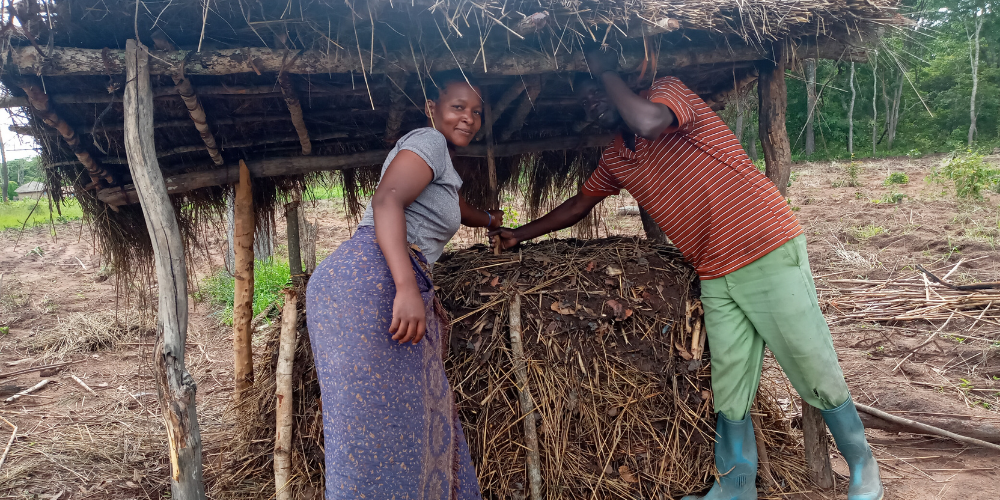Deforestation for agriculture is the biggest threat to chimpanzee habitat in the western Tanzanian landscape. Through the USAID-funded Landscape Conservation in Western Tanzania project (LCWT), JGI focuses on finding sustainable alternatives to agricultural forest-clearing for farmers. Riverine forests in the region are a critical habitat for chimpanzees, other biodiversity, and healthy watersheds. Since low soil fertility is one of the key drivers of agricultural incursions into riverine forests, composting was identified as an appropriate way to build soil health in plots outside of forested areas at low cost.
In Fall 2020, JGI offered a compost training that emphasized lessons on soil fertility and how it relates to farm yield; best agricultural practices; controlling pests and disease; the benefits of riverine forests; and the process of making and applying compost. Over three days, 165 farmers were trained in three pilot villages, culminating in the farmers working together to create a functional compost pile.

Since compost takes time to produce, the project further motivated the farmers by distributing ready-made compost. The farmers saw first-hand that crops receiving compost looked significantly better. “The plot with compost is doing great,” said Moses Mashishanga, a pilot farmer. “The advice given by agricultural experts will give me good yields this year.”
This work is part of a larger innovative LCWT Behavior Change Campaign (BCC) that kicked off in 2021. Through the BCC, a complete environmental behavior change approach will be implemented based on community surveys and collaboration to advance composting, improved farmer yield, and ecosystem protection in the region.




